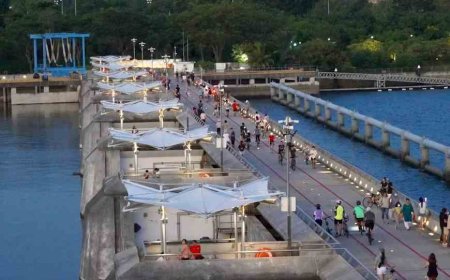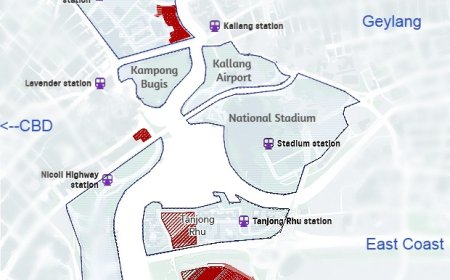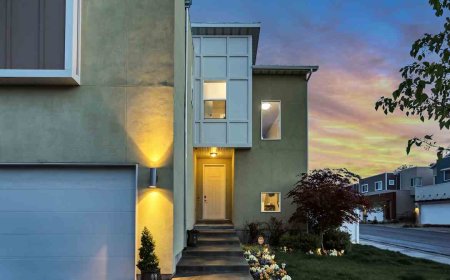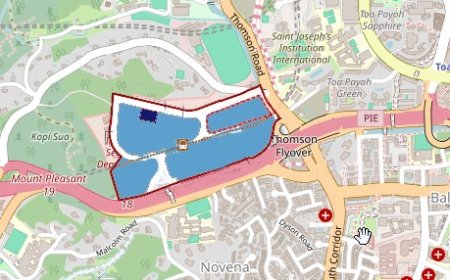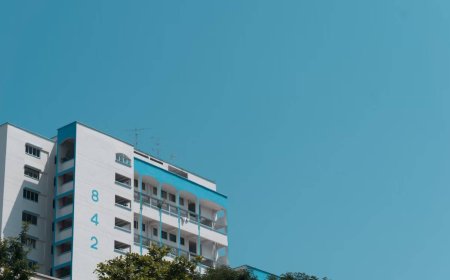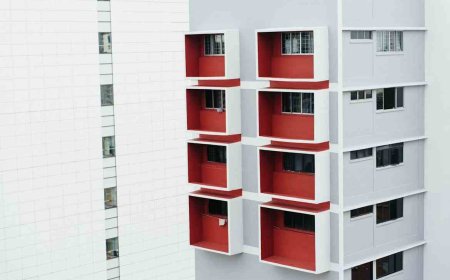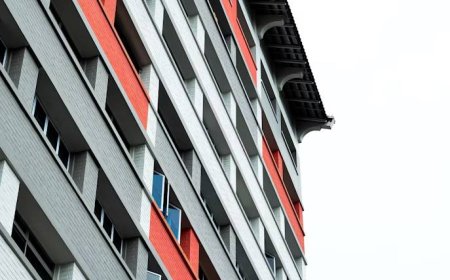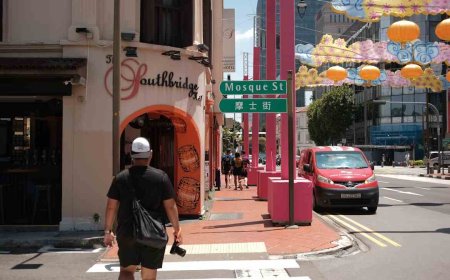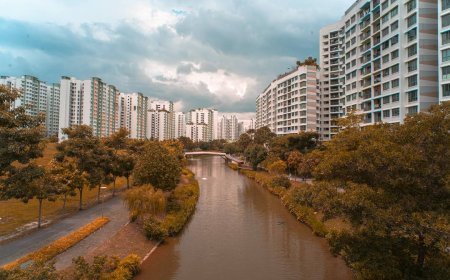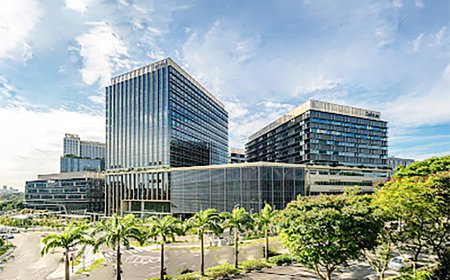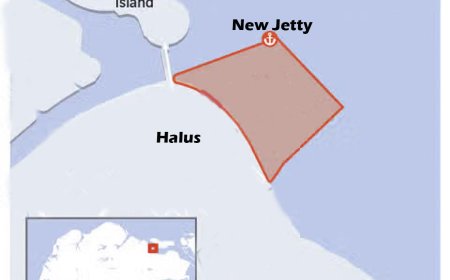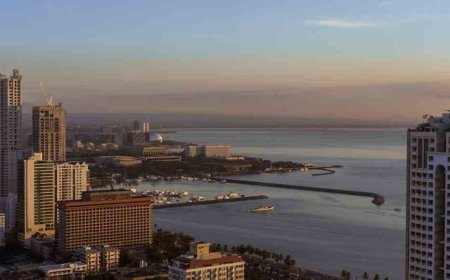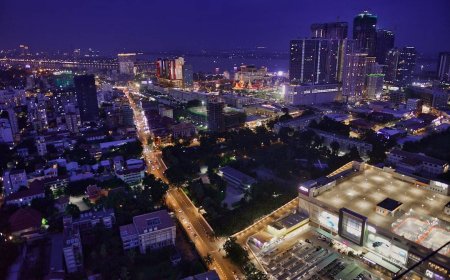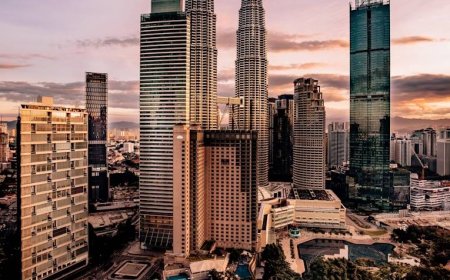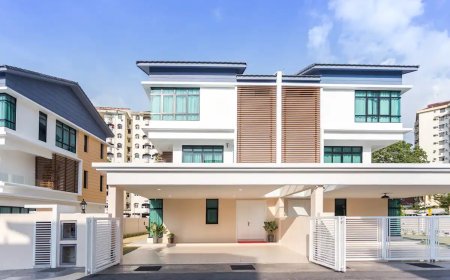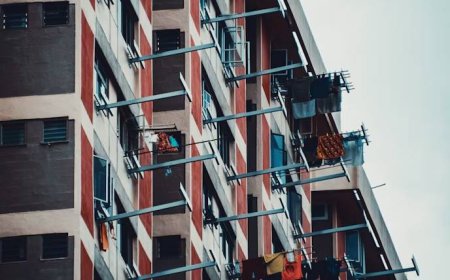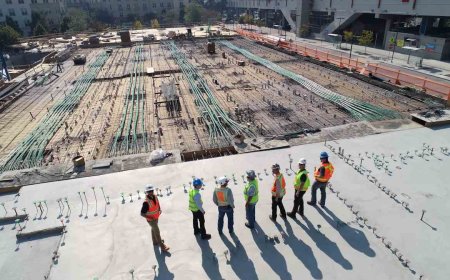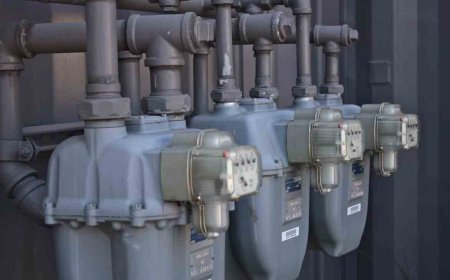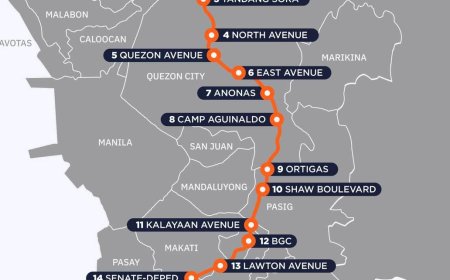Buying Property in Malaysia as a Foreigner (2025)
Discover how foreigners can buy property in Malaysia in 2025. Learn about MM2H, PVIP, property restrictions, costs, financing, and investment opportunities.
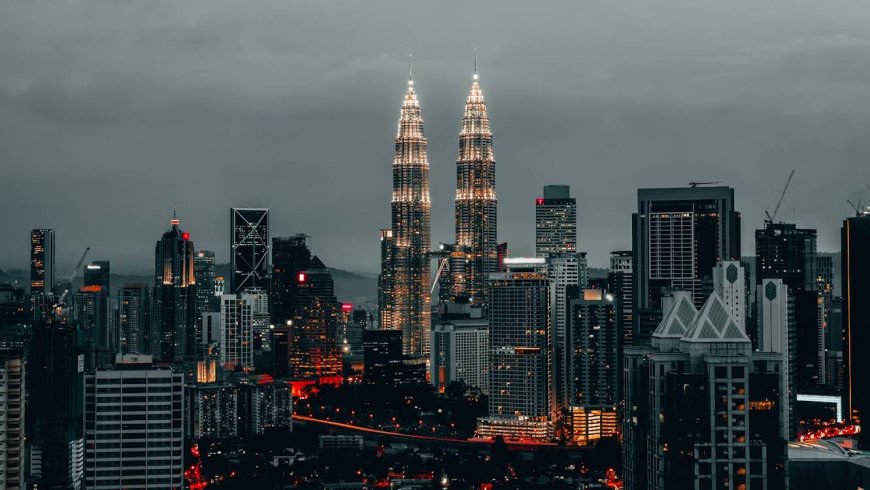
Malaysia has long been one of Southeast Asia’s most attractive destinations for expatriates, retirees, and global investors. With its rich culture, modern infrastructure, relatively low cost of living, and strategic location, the country continues to draw foreign interest in real estate.
By 2025, Malaysia remains a property investment hotspot, with new policies under the Malaysia My Second Home (MM2H) programme and the Premium Visa Programme (PVIP) shaping how foreigners can buy, own, and invest in local property. Whether your goal is retirement, rental income, or long-term investment, understanding the process is crucial.
This guide provides a step-by-step breakdown of how foreigners can purchase property in Malaysia, minimum price thresholds, available visa pathways, costs, financing, legal considerations, and investment opportunities. It also includes practical tips, FAQs, and real-life scenarios to help you make well-informed decisions.
Why Malaysia Appeals to Foreign Buyers
-
Affordable property prices compared to Singapore, Hong Kong, or Australia.
-
English widely spoken, making communication and documentation easier.
-
MM2H and PVIP visas allow long-term stay and property ownership.
-
Modern infrastructure with highways, international airports, and efficient internet connectivity.
-
Cultural diversity and safety, making it an attractive place for families and retirees.
-
Strong rental demand, especially in Kuala Lumpur, Penang, and Johor.
Can Foreigners Buy Property in Malaysia in 2025?
Yes, foreigners are legally allowed to own property in Malaysia under the National Land Code 1965. However, there are restrictions and minimum purchase price thresholds, which vary by state.
Types of Properties Foreigners Can Buy
-
High-rise condominiums and serviced apartments.
-
Landed properties (bungalows, semi-detached houses, terrace houses) – depending on state rules.
-
Commercial properties (shops, offices, industrial units).
-
Land, subject to approval.
Properties Foreigners Cannot Buy
-
Malay Reserved Land (only for Bumiputera owners).
-
Low-cost or medium-cost housing, as defined by state authorities.
-
Bumiputera quota properties, which are reserved for local buyers.
-
Agricultural land, unless special state approval is obtained.
Property Ownership Pathways for Foreigners
Foreigners typically buy property in Malaysia through two main visa programmes:
1. Malaysia My Second Home (MM2H) Programme
Launched in 2002, revised in 2024, and still active in 2025, MM2H now operates under a three-tier system: Silver, Gold, and Platinum.
MM2H Requirements (2024 Revision – still valid in 2025)
| Criteria | Silver | Gold | Platinum |
|---|---|---|---|
| Validity | 5 years (renewable) | 15 years (renewable) | 20 years (renewable) |
| Age | 25+ | 25+ | 25+ |
| Fixed Deposit | USD 150,000 | USD 500,000 | USD 1,000,000 |
| Property Purchase | Min RM600,000 | Min RM1,000,000 | Min RM2,000,000 |
| Participation Fee | RM1,000 | RM3,000 | RM200,000 |
| Renewal Fee | RM1,500 | RM3,000 | RM5,000 |
| Withdrawal from Deposit | 50% (after 1 year) | 50% | 50% |
| Work/Business | Not allowed | Not allowed | Allowed |
| Dependents | Yes | Yes | Yes |
Key Benefit: Ideal for long-term stay, education, and healthcare access.
2. Premium Visa Programme (PVIP)
Introduced in 2022, PVIP is designed for high-net-worth individuals seeking a long-term residency with property ownership rights.
PVIP Requirements
-
Offshore income: RM40,000/month or RM480,000/year.
-
Fixed deposit: RM1,000,000 in a licensed Malaysian bank.
-
Participation Fee: RM200,000 (principal applicant), RM100,000 (dependents).
-
Validity: 20 years (renewable every 5 years).
Key Benefit: Allows working, studying, and owning residential, commercial, or industrial properties.
Minimum Property Price for Foreigners in 2025
The minimum purchase threshold varies by state. Most states set it at RM1 million, but premium zones and island states may require more.
| State / Territory | Minimum Purchase Threshold (State Rules) | MM2H-Related Requirement |
|---|---|---|
| Johor | • RM2,000,000 — landed properties in designated international zones • RM1,000,000 — high-rise / strata properties in other zones (excludes Medini) |
Determined by the applicant’s MM2H tier |
| Melaka | • RM1,000,000 — landed properties • RM500,000 — high-rise / strata units |
Subject to MM2H tier conditions |
| Negeri Sembilan | • RM1,000,000 — landed and landed-strata titles• RM600,000 — high-rise / strata units | Subject to MM2H tier conditions |
| Federal Territory of Kuala Lumpur | RM1,000,000 — general minimum for foreign purchasers | Subject to MM2H tier conditions |
| Federal Territory of Putrajaya | RM1,000,000 — general minimum for foreign purchasers | Subject to MM2H tier conditions |
| Selangor — Zone 1(Petaling, Gombak, Hulu Langat, Sepang, Klang) | RM2,000,000 — minimum threshold | Subject to MM2H tier conditions |
| Selangor — Zone 2(Kuala Selangor, Kuala Langat) | RM2,000,000 — minimum threshold | Subject to MM2H tier conditions |
| Selangor — Zone 3(Hulu Selangor, Sabak Bernam) | RM2,000,000 — minimum threshold | Subject to MM2H tier conditions |
| Kedah | • RM600,000 — typical minimum in most districts • RM1,000,000 — specific threshold for Langkawi |
Subject to MM2H tier conditions |
| Penang (Island) | • RM3,000,000 — landed houses on the island • RM1,000,000 — condominium / apartment units |
Subject to MM2H tier conditions |
| Penang (Mainland) | • RM1,000,000 — landed houses • RM500,000 — strata-title units |
Subject to MM2H tier conditions |
| Perak | RM1,000,000 — general minimum for foreign buyers | Subject to MM2H tier conditions |
| Perlis | RM500,000 — general minimum for foreign buyers | Subject to MM2H tier conditions |
| Kelantan | RM1,000,000 — general minimum for foreign buyers | Subject to MM2H tier conditions |
| Pahang | RM1,000,000 — general minimum for foreign buyers | Subject to MM2H tier conditions |
| Terengganu | RM1,000,000 — general minimum for foreign buyers | Subject to MM2H tier conditions |
| Sabah | • RM1,000,000 — landed properties • RM600,000 — high-rise / strata units |
Subject to MM2H tier conditions |
| Labuan | RM1,000,000 — general minimum for foreign buyers | Subject to MM2H tier conditions |
| Sarawak | RM500,000 — general minimum for foreign buyers | Subject to MM2H tier conditions |
Tip: If you want a lower entry point, states like Sarawak, Perlis, and Melaka may offer better affordability compared to Kuala Lumpur or Penang Island.
Step-by-Step Process of Buying a Property in Malaysia
-
Identify Property – Research, engage agents, or consult developers.
-
Sign Booking Form – Pay booking fee or earnest deposit.
-
Apply for Financing (if needed).
-
Hire a Lawyer – For Sales & Purchase Agreement (SPA).
-
Sign SPA – Pay 10% down payment.
-
Apply for State Authority Consent (mandatory for foreigners).
-
Pay Balance Purchase Price – As per SPA terms.
-
Vacant Possession & Keys – Within 36 months for new projects.
-
Register Transfer of Title – Once strata or individual title is ready.
Financing Options for Foreigners
Foreigners can obtain mortgages in Malaysia, but with conditions:
-
Loan Margin: 60–80% of property price (lower than locals who can get up to 90%).
-
MM2H participants: Higher chance of approval.
-
Local vs Foreign Banks: Foreign banks may offer more flexible criteria but lower loan margins.
Tip: Maintain savings or assets in Malaysia as collateral to improve approval chances.
Costs of Buying Property in Malaysia
Beyond the purchase price, buyers must budget for additional costs:
1. Stamp Duty
-
SPA: RM10.
-
Transfer of Title: 4% flat rate for foreigners.
-
Loan Agreement: 0.5% of loan value.
2. Legal Fees (SRO 2023)
-
1.25% for first RM500,000.
-
1% for next RM500,000 – RM2 million.
-
Negotiable above RM7.5 million.
3. Real Property Gains Tax (RPGT)
-
30% if sold within 5 years.
-
10% if sold after 6 years.
Inheritance and Property Ownership
Foreigners can inherit Malaysian property, but state approval is required. Executors must apply for Probate (if there is a will) or Letter of Administration (if no will).
Is Malaysia Property a Good Investment in 2025?
Pros:
-
Lower cost of entry compared to Singapore & Hong Kong.
-
Attractive rental yields (4–6% in city areas).
-
Strong expat demand in Kuala Lumpur, Johor (near Singapore), and Penang.
-
Long-term visa options (MM2H, PVIP).
Cons:
-
High entry thresholds in prime locations.
-
RPGT reduces short-term flipping potential.
-
Currency fluctuations (Ringgit depreciation risk).
Scenario Examples
Scenario 1: Retiree from Europe
-
Buys a RM1.2M condo in Kuala Lumpur under MM2H Silver Tier.
-
Enjoys healthcare benefits and international community living.
-
Rental income when traveling abroad.
Scenario 2: Entrepreneur from China
-
Enters Malaysia under PVIP.
-
Invests RM3M in Penang landed property plus RM2M in a business.
-
Benefits from long-term residency and ability to operate a company.
Scenario 3: Family from the Middle East
-
Purchases RM2M semi-detached home in Selangor for children’s education.
-
Leverages MM2H Gold Tier for 15 years stay.
-
Children enrolled in international schools nearby.
Frequently Asked Questions (FAQ)
-
Can foreigners buy any type of property in Malaysia?
No, restrictions apply on Malay Reserved Land, low-cost housing, and agricultural land. -
What is the minimum price foreigners must pay?
Usually RM1 million, but it varies by state. -
Do I need a visa to buy property?
No, but visas like MM2H and PVIP make long-term ownership easier. -
Can I get a mortgage in Malaysia?
Yes, but usually only up to 70–80% of property value. -
Do I pay higher taxes than locals?
Yes, foreigners pay a flat 4% stamp duty on property transfers. -
Can I rent out my property?
Yes, foreigners can lease their property. -
What happens if I sell within 5 years?
You must pay RPGT at 30% of the profit. -
Is property inheritance possible for foreigners?
Yes, but requires state approval and legal processes. -
What is the difference between MM2H and PVIP?
MM2H targets retirees, while PVIP targets high-net-worth investors. -
Can I buy property jointly with a Malaysian spouse?
Yes, joint ownership is allowed. -
Do I need approval from state authorities?
Yes, foreign purchases require state consent. -
What is the average rental yield?
Between 4% and 6% depending on location. -
Are there property hotspots for expats?
Kuala Lumpur, Penang, Johor Bahru, and Kota Kinabalu. -
Can foreigners own land?
Only with state approval, usually for development purposes. -
Is buying property in Malaysia safe?
Yes, provided you engage licensed agents, lawyers, and developers.
Key Takeaways
-
Foreigners can buy property in Malaysia, but rules vary by state.
-
MM2H and PVIP visas provide long-term residency and ownership benefits.
-
Minimum investment starts at RM500,000–RM3M, depending on the state.
-
Budget for legal fees, stamp duty, and RPGT when purchasing.
-
Malaysia remains a favorable property investment market in Southeast Asia.
Algene Toh
Disclaimer: The information presented on BSR2.com is intended for general informational purposes only. It does not constitute legal, financial, investment, or real estate advice and should not be relied upon as such. While every effort has been made to ensure the accuracy, reliability, and completeness of the content at the time of publication, all data is derived from publicly available sources and may be subject to change without notice. BSR2.com makes no representations or warranties of any kind, express or implied, regarding the suitability, timeliness, or accuracy of the information provided for any specific purpose. Users are strongly encouraged to seek independent advice from qualified professionals before making any decisions based on the content found on this website. BSR2.com shall not be held liable for any loss, damage, or consequence, whether direct or indirect, arising from the use of or reliance on the information provided. The content is intended as a general guide and does not take into account individual circumstances.
What's Your Reaction?
 Like
0
Like
0
 Dislike
0
Dislike
0
 Love
0
Love
0
 Funny
0
Funny
0
 Angry
0
Angry
0
 Sad
0
Sad
0
 Wow
0
Wow
0
